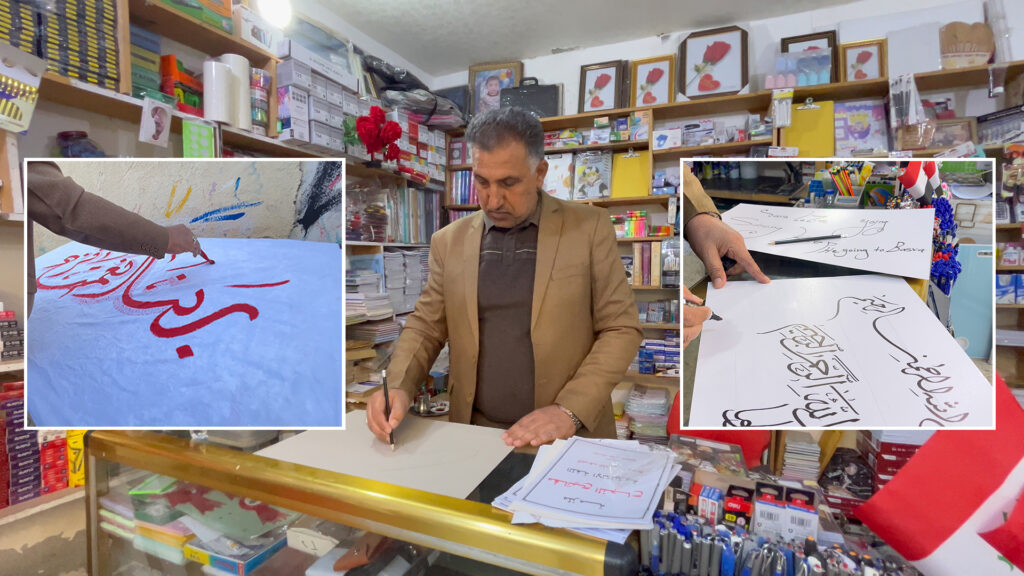New Government or Not, the Iraqi State is Still Struggling to Function

Iraq’s failing state is symbolized not caused by the struggle to form a government among its sectarian political players. Twelve months on from the last parliamentary elections, amid periodic violent clashes and angry protests in Baghdad and the south, a new Iraqi prime minister, Mohammed al-Sudani, has been appointed. However, Sudani is merely the figurehead of one set of Shia political factions and is liable to be as much a spectator of his country’s fate as was his predecessor, Mustafa al-Kadhimi.
The State Administration Coalition that has formed the new government is an alliance of the Shia-led Coordination Framework with the two leading Kurdish parties – the Kurdistan Democratic Party and the Patriotic Union of Kurdistan – and a loose alignment of Sunni Arab politicians. Despite its name, this “State Administration Coalition” has very little to do with the state even though it has succeeded in securing the backing of many of Iraq’s leading politicians.
Rival Shia leader Muqtada al-Sadr’s objective of a majority government, i.e., one with a hoped-for independent parliamentary opposition, isn’t quite dead though. This is despite the failure of Sadr’s yearlong fight to achieve it and the success of Sadr’s rival, Nuri Al-Maliki, the former prime minister and the Coordination Framework’s leading political player, in getting the government he wanted. In June, Sadr had renounced the parliamentary seats that his faction secured in the October 2021 parliamentary elections, and in late July he used his armed militia to storm Parliament and other branches of government in a bid to undermine the Coordination Framework’s efforts to form a new government. Sadr’s focus now will be on using his extra-parliamentary armed strength to, ironically, demand Shia militia disarmament in most of Iraq and, more plausibly perhaps, his faction’s accommodation in governmental arrangements that will likely include controversial electoral law changes ahead of an expected new poll in the next 12-18 months.
The intra-Kurdish division that had contributed to the yearlong political stasis was eventually parked to facilitate the election of the new, figurehead Iraqi president (a de facto Kurdish job since 2003). Reaching Kurdish consensus on Abdul Latif Rashid becoming president was the prerequisite for wider political agreement on Sudani and the coalition government that the KDP and PUK joined.
Ironically, the State Administration Coalition government has in part been bought at the price of increasing tensions between the Kurdish authorities and the central “federal” government of which it is a part. The long-standing Kurdish demand that the constitutional provision for a plebiscite on the future status of oil-rich Kirkuk be acted on and that the Kurdish Peshmerga militia be able to operate there and in Diyala, southeast of Baghdad, may be held off until Kurdish demographics are more suitable. Iraqi federalism, however, will continue to struggle to function amid ongoing oil sovereignty rows between Baghdad and the self-ruled Iraqi Kurdistan Regional Government. More worrying, the official territorial delimitations of the KRG cannot contain Kurdish sovereign ambitions that risk more tension with Shia militias affiliated with the Kurds’ Iraqi government partners. Managing these apparently irreconcilable interests is partly a cynical function of substate politics. The Iraqi state’s weakness enables various militias, Shia and Kurdish, to run both oil smuggling and oil security in their respective fiefdoms.
Although a new government has been agreed upon, the Iraqi state’s functionality will remain beholden to confessional and intra-confessional interests, militia rivalry, and sectional government job quotas, as indicated by a longer study on the structure and exercise of power in Iraq. In such a context, the state, as in the sovereign controller of territory, is almost absent. During recent violence in Basra between Sadr’s militia and the Asaib Ahl al-Haq militia, led by Qais Khazali, an Iraqi security official told Asharq Al-Awsat that his forces’ role in containing the violence was confined to mediating between the warring parties and that if they’re successful “the army and police patrols are deployed to show the strength of the state.”
Khazali’s Asaib Ahl al-Haq is one of several of the Shia-dominated Popular Mobilization Forces that follow the line of Iran in political and even spiritual terms. Khazali is part of the Shia-led Coordination Framework that negotiated a lead role in the new government. Iran’s role in that process was largely to encourage political accommodation among its disparate friends. These include major PMF figures, such as Maliki and the head of the Badr militia and political faction, Hadi al-Amiri. Iran also has a strong connection to the ostensibly anti-Iranian Sadr, the leading Sunni Arab actor and speaker of parliament, Mohammed Halbousi, and the KDP’s Kurdish rival, the PUK.
Iran’s ongoing missile attacks on KDP territory in Iraq are mostly due to Iran’s domestic upheaval, opposition to KDP territory being used to house dissident Iranian Kurdish groups, and pressure to ensure the appointment of a sympathetic government in Baghdad. The latter has essentially been realized. Though Iran is not the only country compromising Iraqi sovereignty. Turkey is intervening on the ground in northwestern Iraq in what it claims is an anti-PUK operation – an argument regularly used by Ankara as justification for Turkey’s periodic occupation of Iraqi territory. According to a number of Saudi and Iraqi accounts, Saudi Arabia in the past was a leading financier of Sunni Arab discontent in Iraq, however, these days it is seemingly preferring to diversify its attempted guiding of Iraqi politics
Arguments abound among leading Iraqi political actors as to who or what is the greatest infringement on Iraqi sovereignty and thus Iraq’s limited state functionality. The PMF sees itself as the savior of Iraqi sovereignty against the still residual presence of the Islamic State in Iraq and the Levant. In fact, some Shia politicians argue that the KRG’s self-rule authority and periodic U.S. airstrikes are the real offenders against Iraqi national integrity. Iraq’s official state security forces are multifarious, competitive, politically compromised, and often lack clear and defined lines of formal authority. The ineffectiveness of the security forces demonstrates how Iraq’s state sovereignty is by definition weak, since the state doesn’t have a monopoly over the use of force, even if various semi- and substate militias claim to be defending national security in what otherwise can be a territorial vacuum.
As platforms of patronage and influence, the key positions within official state security forces are often held by PMF members, which is unsurprising given that political factions close to the PMF exercise great weight within the interior and other security ministries and departments. In the context of Iraqi state weakness, tribes’ importance as an informal political force also overlaps with, and underpins, PMF militia membership and strength in the south. Tribes also underpin some Sunni Arab sheikhs’ continued exercise of traditional authority, try as aspiring Sunni Arab leaders, like Halbousi, do to marshal such forces behind them.
The anger of youth protesters organized as the Tishreen movement is likely to continue to be motivated, in part, in opposition to Iranian political intervention in Iraq that is popularly seen as reinforcing a weak state riddled with corruption and unable to ensure adequate public services and infrastructure. The Iraqi state’s weakness is reinforced by interest-based domestic politics absorbing many of the successfully elected independent members of parliament, including those professing to be the political wing of the Tishreen movement who are likely to remain powerless to change the status quo.
Bargaining over the resources of the government is set to remain just one expression of the struggle for authority in Iraq. Actual sovereignty is likely to continue to be a coercive negotiation backed by various substate militias’ force of arms and financial interests. In this environment, other Iraqis have little choice but to continue to look to sect or tribe to provide the material and identity benefits that the state fails to secure.


